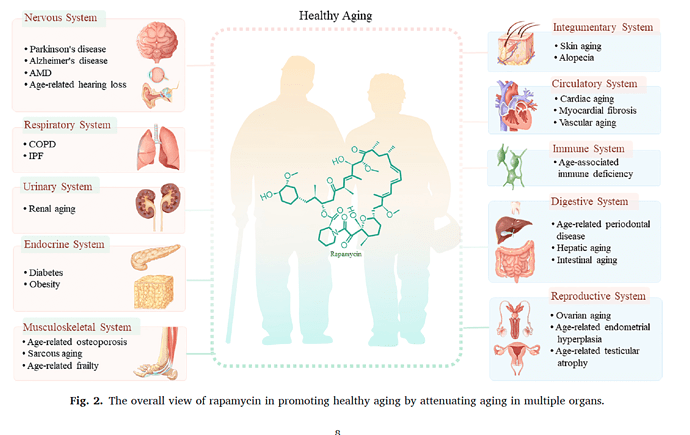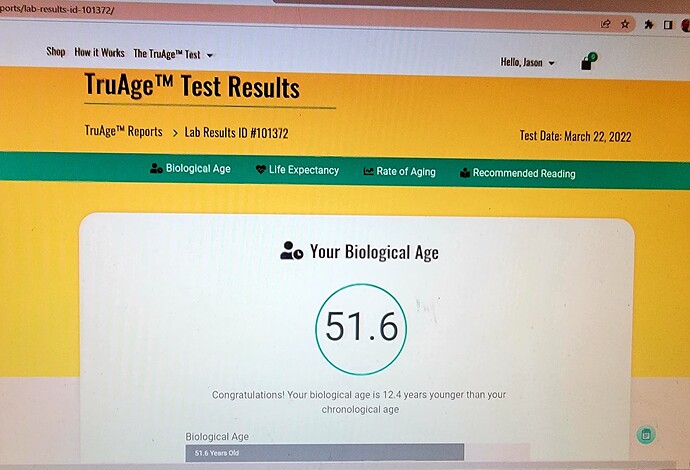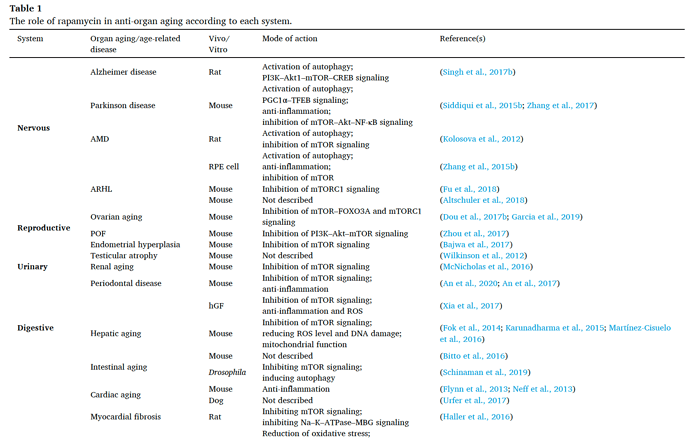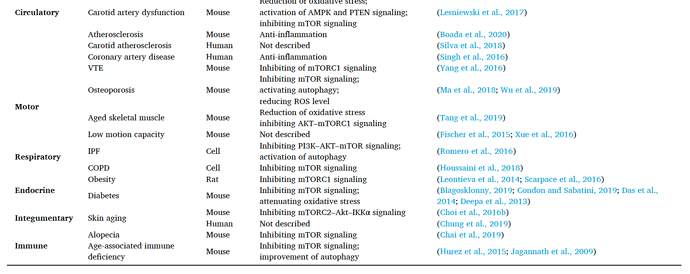So how could you know if rapamycin was improving your body?
There is a lot of evidence that rapamycin can slow aging in individual organs, and even reverse aging in some organs. Here is some of the data:
Dr. Richard Miller mentioned in the Dr. Peter Attia the podcast they did last year (see here: Podcast Petter Attia / Richard Miller), that the elderly (treatment started at human equivalent age 60) mice treated with rapamycin had numerous internal organs (that they looked at) that were like those in young mice. The organs were very different than untreated elderly mice. The information about the internal organs of the rapamycin treated mice (In the section of the podcast starting at 1:59:30):
- Their tendons were youthful.
- Their kidneys were youthful.
- They did not have changes in the heart.
- They did not have changes in the endometrium.
- They did not have changes in the liver.
- And they did not have changes in the adrenal that were characteristic of 22 month old control mice
Additionally, a new research paper digs deeper into the issue of how and where rapamycin can delay or repair 11 different organs “The Role of Rapamycin in Health span Extension via the Delay of Organ Aging” By: Yan Zhang, Jinjin Zhang, Shixuan Wang
In this summary they say that Rapamycin can alleviate aging in multiple organ systems, i.e., the nervous, urinary, digestive, circulatory, motor, respiratory, endocrine, reproductive, integumentary and immune systems.
Dr. Steve Horvath is best known for his work on epigenetic testing – he created the Horvath Clock looking at the biological age of a person compared to their birth or chronological age. Typically they should match.
What is Horvath’s Clock? Horvath used human samples to determine 353 biomarkers correlated with aging (CpG Sites). This study modernized biological age measurement and has remained the standard for biological age determination since.
Since Steve Horvath’s work many others have started work in this area of Biological age. You can get any number of tests using blood or spit at a variety of price levels.
Something for everyone here - link:
From the above list - I personally have tried TruMe based on the high rating of the test and scholarly background of the CEO Yelena Budovskaya .
Her Linked-In profile:
https://www.linkedin.com/in/yelenabudovskaya/
TruMe is a service to those wanting to know how they are doing in the health arena… are my actions – supplements and activities helping me slow down aging or are my poor choices speeding up my aging? Dr. Budovskaya knows her tests are accurate within about 3 years either way. For the most part, people are biologically and chronologically close. You do healthy things maybe it shows you are 3-4 years younger than your chronological age. If you have bad habits maybe you are 4 years older than your chronological age.
With thousands of tests, Dr. Budovskaya has the opportunity to spot the extreme outliers. She can then personally find out what you are doing to have such an extreme difference. In my case with a 13-year biological difference (50-years) from the chronological age of 63. Yelena personally wanted to know my secret – it is Rapamycin and Metformin. Her familiarity with anti-aging (rapamycin and metformin)– she said my biological youth is accurate. Keep at it!
I just did my second test and it came last night and is consistent 12 ½ years difference 51 ½ biological just turned 64 years chronological. Again, Yelena is impressed, but not surprised at my continue biological youth.
FYI - I wish I had done the TruMe test before taking rapamycin for a baseline. I waited and only did it after my first year. So for you who recently started or are thinking about taking rapamycin – it might be worth getting a baseline biological age to see improvements. As this is my second test – I think rapamycin has taken me as far back as it is going to. But yeah, I will take the approx. 13 years difference. I know there are pros and cons to epigentic testing. I am just putting this up here for discussion. Pitter - patter - let’s get at her!!




